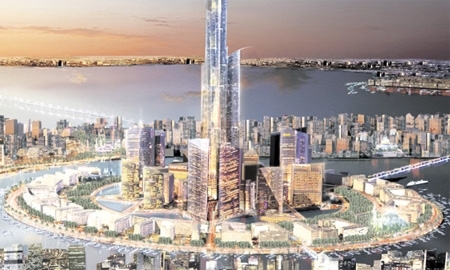Building contractors in Kuwait will be hoping that the roll out of the state's $108bn national development plan drives up activity in the sector, although political wrangling and red tape could mean key projects struggle to meet their 2014 deadlines.
When the government unveiled the Kuwait Development Plan (KDP) in 2010, it detailed more than 300 projects, including a $7bn metro system for Kuwait City, a major expansion of the country's international airport and a number of road, rail and port construction ventures.
While transport infrastructure dominates the program, other initiatives, such as the construction of housing units, health, education and social services facilities, represent significant opportunities for Kuwait's building contractors, who also hope to benefit from key utility projects earmarked for the country.
However, project progress has already become a hotly debated topic among politicians, with some members of parliament accusing the Cabinet of allowing the plan to fall behind schedule.
The issue of delays to projects has also been raised by global organizations such as the International Monetary Fund (IMF), which urged Kuwait to streamline its project approval process and improve legislation aimed at attracting investment or risk missing target deadlines.
The undersecretary in the Ministry of Public Works, Abdulaziz Al Kulaib, recently defended the plan's schedule, pointing out in a statement that approximately $1.88bn, or 94%, of the $2bn allocated for construction projects in the 2011/12 budget had been invested according to plan. He added that the figures reflected the ministry's commitment to supporting the state's development strategy.
The 2011/12 spend, however, marks only a fraction of the total outlay earmarked under the KDP and is unlikely to convince those who believe that the scale of the program alone will make meeting deadlines difficult.
While the IMF described Kuwait's economic outlook for 2012 as "broadly positive" in its latest Article VI review of the country's economy, it also warned in a report issued in May that there was a real risk of the timetable for the development plan falling behind schedule unless key measures, such as new laws aimed at facilitating business activity, were introduced.
In its review, the IMF acknowledged that Kuwait had a strong macroeconomic position, saying, "Economic recovery is expected to strengthen, led by high government expenditure – particularly wages and capital expenditure."
The organization warned, however, that while increased spending on construction would benefit the economy, the government needed to rein in expenditure in other areas, notably pensions and public wages, to allow it to continue funding capital works and other expansionary programs.
The government hopes that a significant portion of the investment for major construction projects will be raised through public-private partnership (PPP) initiatives. The Partnerships Technical Bureau (PTB), the state agency tasked with implementing the PPP program, expects winning bidders to take on 40% to 50% of the shares in "design-build-finance-maintain" infrastructure packages.
The head of the PTB, Adel M Al Roumi, is confident that the short-term boost that spending on infrastructure construction should give the economy will bring additional benefits over time. "We are delivering this infrastructure in order to accommodate a larger, more open economy," he said in an interview with on-line publisher Macropolis on June 27. "When you look at PTB projects, like the enhancement of telecommunications, transportation, electricity, this is done to provide a better environment for business."
While the PPP scheme is in keeping with the government's objective of encouraging the private sector to play a greater role in the economy, there is a risk that recent political upheaval in the country could dampen investor enthusiasm.
In late June, Kuwait's cabinet resigned after the country's highest court overturned results from February's national election and ruled that the parliament elected in 2009 should not have been dismissed. Outgoing Prime Minister Sheikh Jaber Al Mubarak Al Sabah has been chosen to select a 15-member cabinet, after which the Emir of Kuwait, Sheikh Sabah Al Ahmad Al Sabah, is expected to dissolve parliament to allow fresh elections, which will likely be held after Ramadan.
This political instability may further delay the roll out of some ventures, meaning that many of Kuwait's contractors will likely be hoping that the approvals and tenders given for projects are sufficient to help move the national development plan forward.
Arab Times
17 July

























































